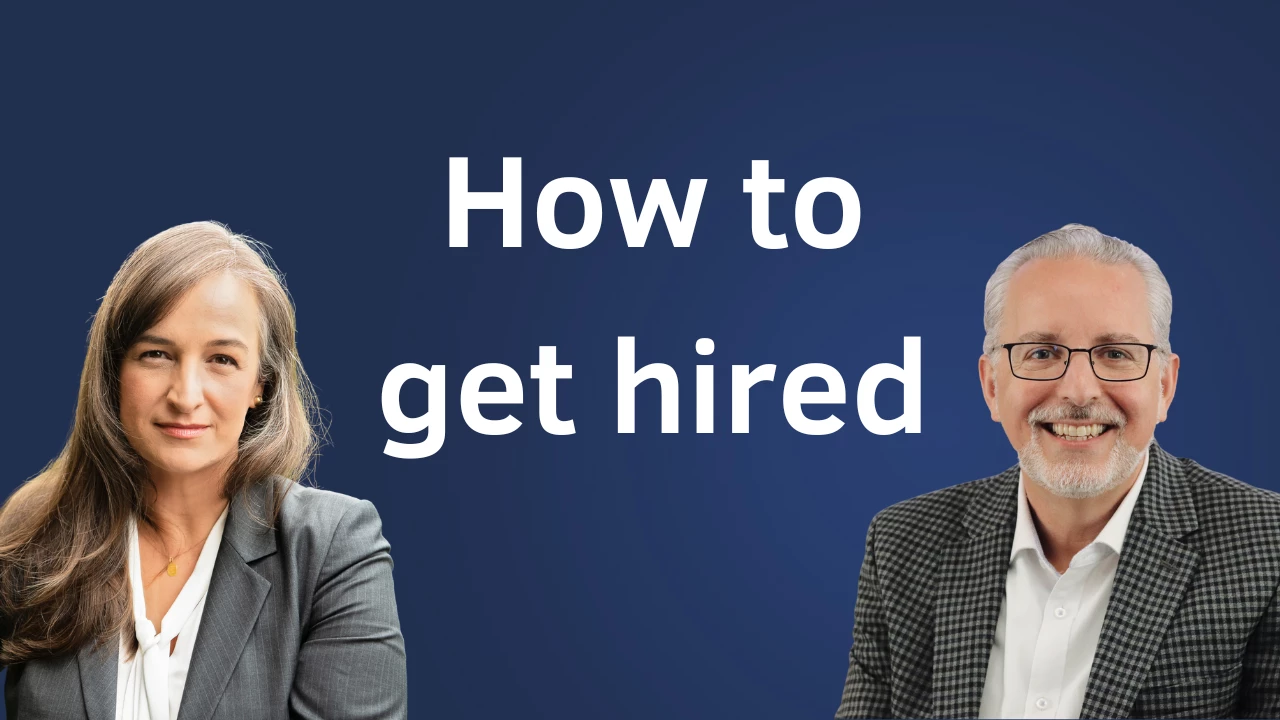Episode 156 - How Job-Hunting Has Changed and How to Get Hired - with Evan Sohn

Evan Sohn is the Chairman and Chief Executive Officer of RECRUITER.COM, an on-demand recruiting platform that combines AI and video job-matching technology with the world's largest network of small and independent recruiters. RECRUITER.COM is a SaaS AI recruiting software. It helps employers like Amazon and Pfizer source and hire the best candidates, such as product managers, business analysts, marketing specialists, business managers, and so on. You get the picture. Basically, it’s software that helps employers find you.
"What's really changed is that the availability of jobs, certainly in the knowledge worker, has never been greater." - Evan Sohn
So, when Evan’s team reached out to me for a podcast chat, I was prepared for a very techy conversation. But that is not the case. I was surprised and happy with the outcome and believe many listeners will enjoy the sharp, crisp, and very pragmatic chat that I had with Evan a few weeks ago.
Evan goes back to basics and reinforces many messages we have heard before on this podcast. One of those key messages is the need to know your superpower, career DNA, or exceptional talents.
If you’re struggling to figure it out, fear not! I’d love to help you. Please go to my Find My Talents, a new service I'm offering, which will deliver to you in spades. You can pair it up with a consultation with me or just at least take that first step of investing in the assessment. I trust you will be happy with the results when you get the report highlighting your top talents, career drivers, and personal values. It will give you great confidence in developing your professional pitch. To learn more about Find My Talents HERE.
"Figure out who you are and then find a job that aligns with that." - Evan Sohn
Back to our guest, Sohn is a frequent contributor to CNBC and Yahoo! Finance and demonstrates expertise in a diverse set of industries, including Wi-Fi, Instant Messaging, data security, customer relationship management (CRM), and much more.
A word of warning, you will want to take notes! Grab a notebook, this episode is packed with interesting advice.
Enjoy this conversation.
About our guest, Evan Sohn
Evan Sohn is the Chairman and Chief Executive Officer of RECRUITER.COM, an on-demand recruiting platform that combines AI and video job-matching technology with the world's largest network of small and independent recruiters. Sohn is a frequent contributor to CNBC and Yahoo! Finance and demonstrates expertise in a diverse set of industries, including Wi-Fi, Instant Messaging, data security, customer relationship management (CRM), and much more.
Resources mentioned in this episode
Timestamps to guide your listening
Transcript of this episode
About the Host
Hello, I’m Renata Bernarde, the Host of The Job Hunting Podcast. I’m also an executive coach, job hunting expert, and career strategist. I teach professionals (corporate, non-profit, and public) the steps and frameworks to help them find great jobs, change, and advance their careers with confidence and less stress.
If you are an ambitious professional who is keen to develop a robust career plan, if you are looking to find your next job or promotion, or if you want to keep a finger on the pulse of the job market so that when you are ready, and an opportunity arises, you can hit the ground running, then this podcast is for you.
In addition to The Job Hunting Podcast, on my website, I have developed a range of courses and services for professionals in career or job transition. And, of course, I also coach private clients.
Contact Renata Bernarde
I’m determined to help you! I want you to feel empowered, nail your next job, and have the career you want.
My free resources for job hunters: The Optimized Job Search: Weekly Schedule & Masterclass.
Learn more about my services, courses, and group coaching: RenataBernarde.com
